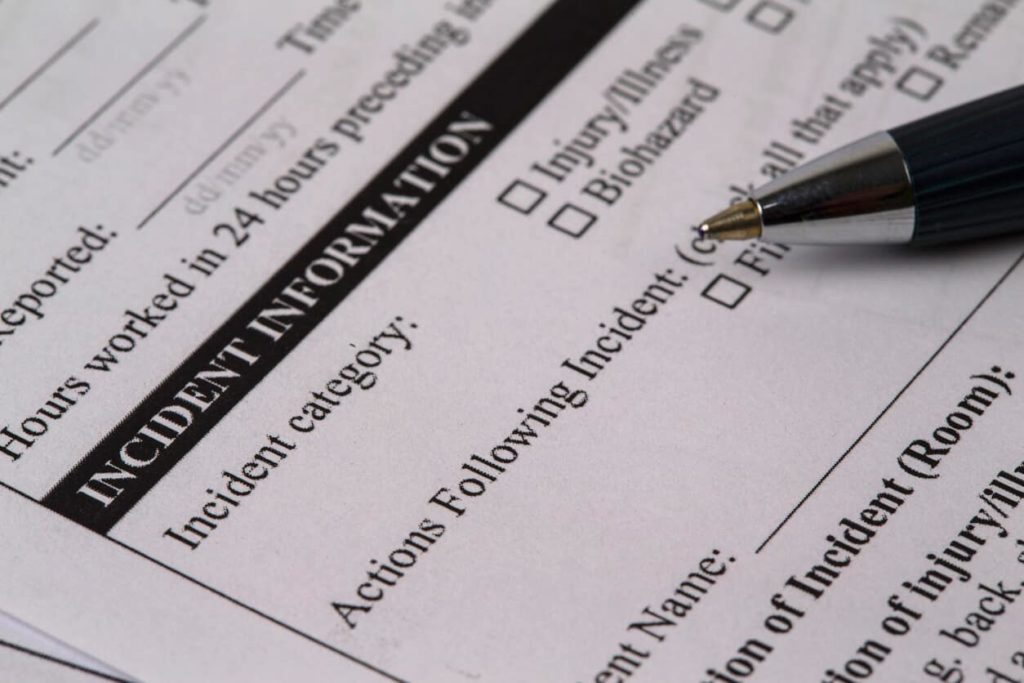DO I HAVE TO PAY TAXES ON A WORKERS’ COMP PAYOUT?
If you receive a workers’ comp payout, or if you’re expecting one in the future, it’s important to start thinking about taxes. You might wonder if workers’ compensation payments are taxed. It’s wise to think about how to protect yourself and take the right steps as far as taxes are concerned. But are workers’ comp payouts taxed? Here’s what you need to know from our Colorado workers’ compensation attorneys.
Personal Injury Lawyers » Practice Areas » Colorado Workers’ Compensation Attorneys » Do I Have to Pay Taxes on a Workers’ Comp Payout?
- Do I Have to Report Workers' Compensation on My Taxes?
- Do I Have to Pay Taxes on a Workers' Comp Payout?
- Do Workers' Comp Settlements Get Taxed?
- Are Lump-Sum Workers' Compensation Payments Taxable?
- Do They Take Taxes out of Workers' Comp Checks?
- Do You Receive a 1099 for Workers' Compensation?
- Will I Receive a w2 for Workers' Comp?
- Workers' Compensation IRS Law – IRS Publication 907
- Are Workers' Comp Survivor Benefits Taxable?
- Workers' Compensation and SSDI/SSI Taxes
- How to Minimize Your SSDI/SSI Workers' Compensation Offset?
- Contact Our Colorado Workers' Comp Attorneys
- Related Workers Compensation Resources
- You Deserve Fair Compensation
Do I Have to Report Workers’ Compensation on My Taxes?
No, you don’t have to report workers’ compensation on your taxes. Workers’ compensation benefits are not taxable by federal law. In addition, benefits are not taxed by most states.
It’s important to be aware that SSDI or SSI payments that reduce workers’ compensation benefits may result in taxes. However, you do not have to report workers’ compensation payments on your taxes.
Do I Have to Pay Taxes on a Workers’ Comp Payout?
No, you do not have to pay taxes on a workers’ comp payout. Workers’ comp payouts are not taxed federally. They are also not taxed in most states. Even though workers’ comp payouts aren’t taxed, there are some other kinds of related payments like SSDI, SSI, and workers’ comp interest payments that may be taxed or that may impact the tax classification of your workers’ comp payments. However, the general rule is that workers’ comp payouts are not taxed.
Do Workers’ Comp Settlements Get Taxed?
No, workers’ comp settlements do not get taxed. Workers’ comp settlements are excluded from income under United States law. If you receive a lump-sum payment that includes interest, the amount that represents interest is taxable. However, in general, you do not have to claim your settlement on your income taxes, because workers’ comp settlements do not get taxed.
Are Lump-Sum Workers’ Compensation Payments Taxable?
No, lump-sum workers’ compensation payments are not taxable. Because workers’ compensation payments are already a reduced amount compared to your income, the federal government chooses not to again reduce your payments in the form of taxes. Lump-sum workers’ compensation payments are not taxable federally or under most state laws.
Do They Take Taxes out of Workers’ Comp Checks?
No, they do not take taxes out of workers’ comp checks. That’s because workers’ comp payments are generally not taxed. Although there are some circumstances where interest may be taxed or where an amount offset for social security disability payments may be taxed, the general rule is that workers’ comp checks are not taxed. Because the recipient doesn’t pay taxes, they don’t take taxes out of workers’ comp checks.
Do You Receive a 1099 for Workers’ Compensation?
No, you do not receive a 1099 for workers’ compensation. Workers’ compensation payouts are not taxed, so the employer doesn’t have to create a record for the IRS by issuing a 1099. If an employer sends you a 1099 for workers’ compensation payments, they made a mistake.
You should ask the employer to issue a new 1099-MISC to cancel out the error. You can also talk to your state workers’ compensation governing body to correct the mistake. Generally, you should not receive a 1099 for workers’ compensation.
Will I Receive a w2 for Workers’ Comp?
No, you will not receive a w2 for workers’ comp. The payments you receive under your state workers’ comp system is not considered taxable income. Instead, it’s a reduced benefit that compensates you for income that you would have earned if you had been able to continue to work. You will not receive a w2 for workers’ comp because you don’t have to pay taxes on workers’ comp funds.
Workers’ Compensation IRS Law – IRS Publication 907
IRS Publication 907 [1] states that workers’ compensation income is not taxable under United States law. The publication classifies the payments are “other payments.” The IRS website says that payments for an occupational injury or illness are not taxable if the payments are made under a workers’ compensation program.
Are Workers’ Comp Survivor Benefits Taxable?
No, workers’ comp survivor benefits are not taxable. If an occupational injury or illness results in death, the survivors of the victim may receive workers’ compensation benefits without paying taxes on the amount received. Workers’ comp survivors benefits are not taxed.
Workers’ Compensation and SSDI/SSI Taxes
While workers’ compensation is generally not taxable, there are some circumstances where workers’ comp payments can influence other disability payments and the way that they are taxed. For example, workers’ compensation payments may result in an offset of SSDI or SSI income. If SSDI or SSI is reduced because of workers’ comp, the amount of the reduction becomes taxable income. It’s important to be aware of and account for the amount of the offset to correctly report the amount of money that’s taxable as income.
For example, the general rule is that your combined SSDI and workers’ compensation payments can’t total more than a certain percent of your previous income. If the two calculated payments are more than the limit, the U.S. government will reduce your SSDI payments until you’re at the income limit. Even though it’s the amount of the SSDI that gets reduced, the same amount of workers’ compensation becomes taxable. It’s important to be aware of the fact that a payment reduction can shift taxable income to workers’ compensation.
How to Minimize Your SSDI/SSI Workers’ Compensation Offset?
If you’re in a situation where a workers’ compensation offset may become taxable, there are things that you can do to minimize your tax liability. You can include language in your workers’ comp lump sum settlement that treats the payment as though it is spread out over a period of months or years. Although you still receive your payment as a lump sum, for tax purposes, the law treats it as though you are getting a little bit each month. The end result can be a lower tax burden for your workers’ comp payout.
Contact Our Colorado Workers’ Comp Attorneys
Do you have questions about your workers’ comp payout? Do you want to know whether your workers’ comp payment will be taxed? Do you want to minimize your workers’ comp tax burden? Our Colorado workers’ comp payout attorneys can help. We are conveniently located at 5 Colorado locations near you in Denver, Fort Collins, Colorado Springs, Aurora, and Englewood. Our attorneys are ready to serve you and fight for the compensation you deserve. Call us today for a confidential consultation about your claim.
Related Workers Compensation Resources
You Deserve Fair Compensation
Don’t let the insurance companies intimidate you into accepting less than you deserve. We’re ready to fight for you.













